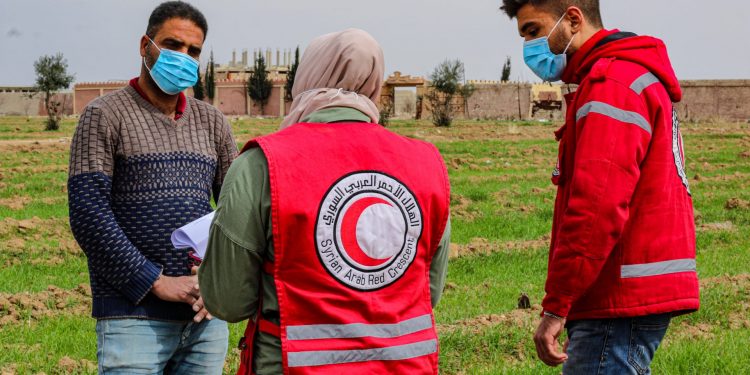He locked all the doors, carried what he could of his family’s essentials, and left without turning behind or saying goodbye to the place of his childhood. It was painful for him to move and leave all memories behind, but getting his family to a safer town mattered more.
Mixed feelings
Abu Tahseen’s heart was squeezing in pains and bitterness on that day, when his life turned upside down. He used to farm his own land that ensures good living conditions for his family. He had his cozy house that echoed with his family’s laughter. However, the crisis left him jobless and homeless.
“When I left my town, I had the same feelings of those unbeatable heroes we see in a movie trying desperately to protect their families and bring them to safe haven. But it wasn’t a fictional movie, it was a reality,” said Abu Tahseen.
New community and new work
The family reached a safe place, where Abu Tahseen started his new work in selling water so that he could meet the family’s needs.
“It was not easy to find work in a new place, so I worked in selling water so that I could support my family,” said Abu Tahseen.
Disappointing return
When Abu Tahseen knew that his town became safe and peaceful again, he didn’t think twice about going back home. He rushed for the long-awaited meeting, but what he saw was heartbreaking. His house was partly destroyed, and the lands were burned to the stones.
Glimmer of hope
The family made needed restorations, rented land to regain its livelihood, but the farmed squares were small due to the insufficient water provisions.
In 2020, Abu Tahseen managed to expand the farm with the implementation of the Maliha River rehabilitation project, by the Syrian Arab Red Crescent in Rural Damascus. The project ensured water irrigation coverage to more than 2,088 acres planted by more than 1,000 farmers.
Recovery and recall the old days
Having enough water provision and with the support of the house garden grant and the wheat grant, Abu Tahseen regained the memories of his life before the agony decade of crisis. “I feel like I am back to my days before the crisis,” said Abu Tahseen.


